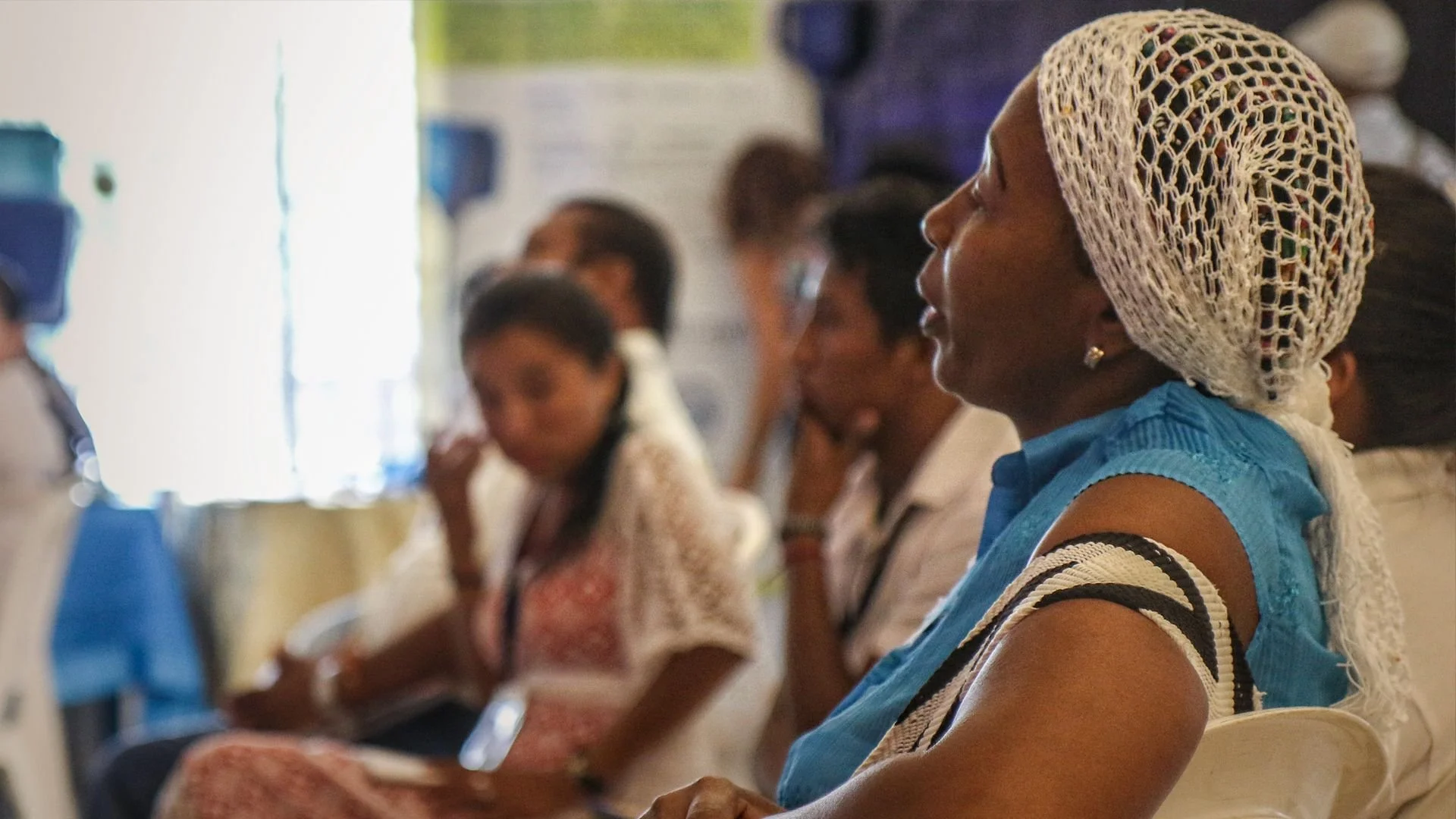Water needs are inseparable from human rights
This month, on the 71st Human Rights Day, we paused to reflect on and commend efforts around the world to improve the lives of billions of people. This year’s theme is Equality - Reducing inequalities, advancing human rights.
Water and sanitation as the foundation to address inequality
At CAWST, we can’t tackle all aspects of inequality. But we can reduce inequality by accelerating access to water and sanitation.
For people living in extreme poverty, there are often colossal inequalities in access to safely managed water and sanitation. Further inequalities exist for the very populations named in the call to action for this year’s Human Rights Day:
"...to address and find solutions for deep-rooted forms of discrimination that have affected the most vulnerable people in societies, including women and girls, indigenous peoples, people of African descent, LGBTI people, migrants and people with disabilities, among others.”
Universal access to safely managed water and sanitation—as a basic necessity for life, health and wellbeing—is imperative for creating a more just and equitable world.
Water and sanitation leads to more equitable societies
In addressing the human right to water and sanitation, which are prerequisites for basic health, we make a significant contribution to more equitable societies and productive economies. For example, when families have improved access to water, women and girls, who traditionally carry the burden of collecting water and taking care of those who fall ill from drinking contaminated water, can use their time more productively.
Empowerment drives equality
The way in which people access safe drinking water is almost as important as access itself.
Affordable technologies and practices exist that can make a difference in peoples’ lives, both immediately and for the long-term. When people learn about them, they take action right away. As their skills and abilities increase, so does their confidence, capability and hope. This level of empowerment transforms entire communities.
Investing in people taking action
Dalia is one of the many changemakers CAWST has helped train around the world.
In March 2021, Dalia Molina from Confuso, Colombia, said something that highlights a key challenge for tackling inequalities. “Rural communities are always overshadowed by the needs of cities and nobody sees our need or our work,” says Dalia. “We see a lot of human rights and environmental violations. We spent a year and four months without water in the community of Confuso.”
Today, her proactive work is showing results. “I take pride in having quality of life these days because water is essential for life,” says Dalia. “Since we got water, we had the opportunity to grow vegetables and raise chickens.”
Marginalization, and efforts to limit it, can extend to many other places such as professional development opportunities. Through accessible and inclusive capacity development, CAWST works with local partners to provide participatory forums for learning and knowledge exchange.
Manual pit emptiers often experience marginalized status. A recent webinar series gave them a forum to discuss their trade and be heard.
Recently, CAWST, Sanergy and the Pan-African Association of Sanitation Actors co-hosted a free, five-part webinar series that explored how to work more effectively with manual pit toilet emptiers to achieve safely managed sanitation. Sessions were attended by NGOs, government and members of the emptying community, including manual emptiers. Most exciting to witness was the peer-to-peer learning and problem solving by manual pit emptiers; they represented themselves, spoke to their challenges and successes, and shaped the conversations regarding their work. In essence, people who are amongst the most marginalized stepped up and led the way.
Sustainable Development Goals are all interconnected
This Human Rights Day, we are being called to rebuild better, fairer, greener as part of the Sustainable Development Goals, the world’s roadmap to a more equal humanity. Reaching any of the 17 global goals is an impossible task without the progression of all others. Just like human rights, they are interdependent, relying upon the success of each other to be achieved.
The fulfilment of the human right to water and sanitation plays a critical role in advancing better health and well-being, greater equality and economic growth—all of which reduce extreme poverty.
Join us in advancing human rights around the world
Water is a human right. More than that, it is fundamental to survival, and the lack of safe water hurts marginalized populations the most. The UN’s Committee on Economic, Social and Cultural Rights states "the human right to water is indispensable for leading a life in human dignity. It is a prerequisite for the realization of other human rights." This need is what drives us. It is why CAWST exists.
Our solutions are both immediate and long-term. We strengthen and enable people to take action within their own communities to address and achieve one of their most basic human rights. What could be more empowering than that?
Will you join us in advancing human rights? Follow along with CAWST by signing up here.
Sources:
Resolution A/RES/64/292. United Nations General Assembly, July 2010
General Comment No. 15. The right to water. UN Committee on Economic, Social and Cultural Rights, November 2002

